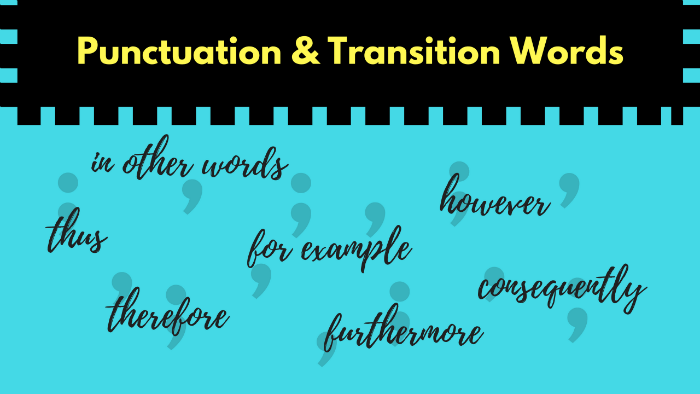Two weeks ago, we talked about comma splices—errors that happen when you join two main clauses with just a comma–but you can make the same kind of mistake if you aren’t careful when joining two main clauses with conjunctive adverbs such as however, therefore, furthermore, and nevertheless.
Two Main Clauses
Remember, a main clause, also known as an independent clause, is just something that could be a complete sentence if it were all by itself. If you’re joining two main clauses with a conjunctive adverb, you need a semicolon before that adverb, and a comma after. That adverb needs to be snuggled between a semicolon and a comma.
Think about this example. Imagine I’m worried about a library book that is due tomorrow:
I’m not finished reading it; moreover, I left it at Steve’s house.
I’m not finished reading it is a main clause, and I left it at Steve’s house is a main clause, so I need a semicolon before moreover and a comma after it.
Or, in the same way you can fix a comma splice with a period, I could also separate the two main clauses with a period:
I’m not finished reading it. Moreover, I left it at Steve’s house.
Adverbs in the Middle
This is where it gets tricky because sometimes conjunctive adverbs come in the middle of your sentence and aren’t followed by a main clause, and then you can just sandwich them between two commas. Here are some examples of sentences like that:
I’ll wager, moreover, that the library won’t cut me any slack on the fine.
Fines are, however, an important tool the library uses to get people to return books on time.
In both those sentences, the part after the adverb isn’t a main clause, so I just used a comma before and after the words moreover and however.
Semicolons with Transition Words
The same rules apply to transition words and phrases such as for example, in other words, and on the other hand,
If you’re joining two main clauses, you use a semicolon and comma just like you did before, but if the part after the transition isn’t a main clause, then you use two commas.
First think about this example:
I might be able to get it back in time; for example, I could ask Steve to bring it by before work.
I might be able to get it back in time is a main clause, and so is I could ask Steve to bring it by before work, so I snuggle for example between a semicolon and a comma.
Commas with Transition Words
Now think about this example:
I could ask Steve to bring it by, for example, before work or during his lunch hour.
Now the part after for example is just a couple of prepositional phrases, not a main clause, so you don’t need a semicolon. You just use two commas–one before for example and one after.
It all depends on whether the part that comes after the transition is a main clause or not, and it’s easy to get distracted, but just remember with a main clause after your transition word, you need a semicolon before and a comma after, and without a main clause, you can get away with two commas.
Exercises
Here are some practice sentence. Fill in the right punctuation:
- You need to help with the housework furthermore I need a vacation.
- Bring Squiggly something he’ll like for example he likes chocolate mousse and cheesecake.
- This test will make up 50 percent of your grade therefore it’s important that you study.
- We will therefore double our practice schedule.
- You need to clean your room before you go to the movies therefore get cracking!
- Jimmy threw a rock at the beehive consequently all the kids got stung.
- Aardvark is however the best fisherman on the bass circuit.
- Mandy practices piano all day similarly you can’t tear Brandon away from his violin.
- I cooked Sammy’s favorite dinner nevertheless he wouldn’t come out of his room.
- Not enough players showed up in other words they had to forfeit the game.
Answers are on the next page.
Answers
- You need to help with the housework; furthermore, I need a vacation.
- Bring Squiggly something he’ll like; for example, he likes chocolate mousse and cheesecake.
- This test will make up 50 percent of your grade; therefore, it’s important that you study.
- We will, therefore, double our practice schedule. *
- You need to clean your room before you go to the movies; therefore, get cracking!
- Jimmy threw a rock at the beehive; consequently, all the kids got stung.
- Aardvark is, however, the best fisherman on the bass circuit.
- Mandy practices piano all day; similarly, you can’t tear Brandon away from his violin.
- I cooked Sammy’s favorite dinner; nevertheless, he wouldn’t come out of his room.
- Not enough players showed up; in other words, they had to forfeit the game.
- * In her book “The Best Punctuation Book, Period,” June Casagrande says “Sentence adverbs like ‘however,’ ‘therefore,’ and ‘indeed’ may or may not be set off with commas, depending on whether the writer judges them to be parenthetical insertions or well integrated into the sentence.” Therefore, the commas in this sentence are optional.





